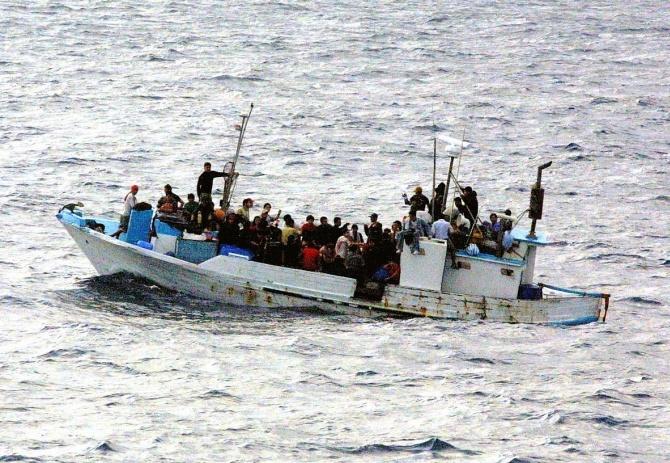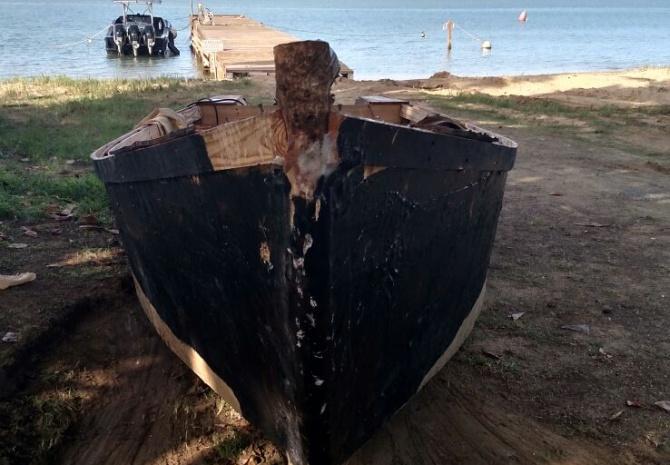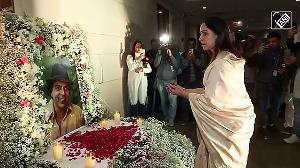Yadvinder Singh Bhamba was arrested for conspiring to send 400 people from India, Haiti, the Dominican Republic and other countries to the US.
P Rajendran reports from New York.

Yadvinder Singh Bhamba caused some consternation when he was arrested for smuggling people to the US.
For, unlike most people in the criminal enterprise, Bhamba, who pleaded guilty to the charges against him, is an Indian national.
Bhamba's attorney Ignacio Fernandez de Lahongrais, who is from Puerto Rico, a territory of the US, said it was not unusual for people in the area to be involved in human smuggling.
"It is common for a person from the Dominican Republic (or other nearby countries) to come in (with smuggled people). What is not common is from a national from so far away (to be involved)."
Bhamba was arrested for conspiring to send 400 people from India, Haiti, the Dominican Republic and other countries to the US, thus circumventing the immigration process.
The people were transported to Puerto Rico and Florida between at least 2013 and August 2016.
According to the plea agreement Bhamba signed on, he admitted that he worked in Haiti, the Dominican Republic, Puerto Rico and other places, organising ways for these people to circumvent security and passport control, relying on corrupt officials along the way.
He also met some clients in various countries, including Iran and Hong Kong, worked with others to transport and house them, keeping track of payments in handwritten ledgers.
His team members also bore false names, with some not knowing their collaborators's real names. Bhamba also told them not to use their real names on the phone as they doubled up as boatmen, stash house operators, drivers and more.
'In some cases, members of the conspiracy provided travel assistance for aliens traveling from India through other countries including Thailand, the United Arab Emirates, Argentina, Iran, Panama, Venezuela, Belize, and Haiti to the Dominican Republic,' the agreement read.
'The Dominican Republic was used as a staging area, where aliens were housed before being sent to the United States. Members of the conspiracy operated stash houses in the Dominican Republic, or paid for hotel rooms to use as stash houses,' the agreement added.
'Members of the conspiracy arranged for boat captains to transport groups of aliens from the Dominican Republic to Florida or Puerto Rico.'
The boats were often old, unlicensed, unsafe and overcrowded, and at least one person died while being transported to the US.
The organisation charged Indians between $30,000 and $85,000 for travel, housing, basic necessities, fake documents and other services.
There were additional charges of $1,500 to $3,000 for those who landed in Haiti to go to the Dominican Republic.
Those who could not pay faced threats to themselves and their families in India, had their passports taken from them or were physically harmed.

Bhamba's guilty plea, includes one charge of conspiracy and 15 for illegally transporting 15 people who set out in January 2016 and were to reach Puerto Rico that July.
The boat carrying them lacked lights and navigational equipment, was painted black for concealment, and was permitted to carry just eight people not 15 passengers besides the crew when the authorities flagged it down.
Bhamba made calls to inquire about the boat which had not arrived yet, and commissioned one of his co-conspirators to make sure it had not sunk.
Investigations by the US justice department's criminal division and homeland security investigations led to Bhamba being arrested in August 2017.
Responding to a question, Nicole Navas, a DOJ spokesperson clarified that the case "involves human smuggling, not human trafficking."
Though an Indian national, Bhamba is no stranger to the US or the prison system there. He illegally entered the US when he was 20 or 21 years old, going in from Canada.
He lived in New York for 10 years, then California for another two before moving to New Jersey.
Around 1992, he began smuggling people to the US. After being caught for transporting 12 Indians to Florida state, he was convicted in 1999 and jailed for a year before being deported back to India.
In 2000, he returned to the US, calling himself Rajinder Kumar and tried to acquire a US visa.
By 2013, he was back to human smuggling. Other names Bhamba has used include Bhupinder Kumar, Atkins Lawson Howard, Robert Howard Scott (when using Western Union to pay a hotel used as a stash house), and the nickname Ruby.
Given the circumstances, the plea agreement that allows for five years in prison, was a good one for Bhamba, Lahongrais said.
"If there was a trial and he lost, assuming the government could have proven everything they sought to prove... he could have been exposed up to nine years," he said. "Mr Bhamba made the right decision. He should not have risked trial."
The quick resolution was not just right for Bhamba, he said.
"It was good for the government, too. Their evidence would have been challenged," Lahongrais said, pointing out that it would be a long and taxing process for the authorities.
Asked if Bhamba was happy with the decision, Lahongrais said a little wryly, "He is not happy. He is satisfied. He recognises he reached a common sense decision. He viewed the risk against him and he decided to reach an agreement."









